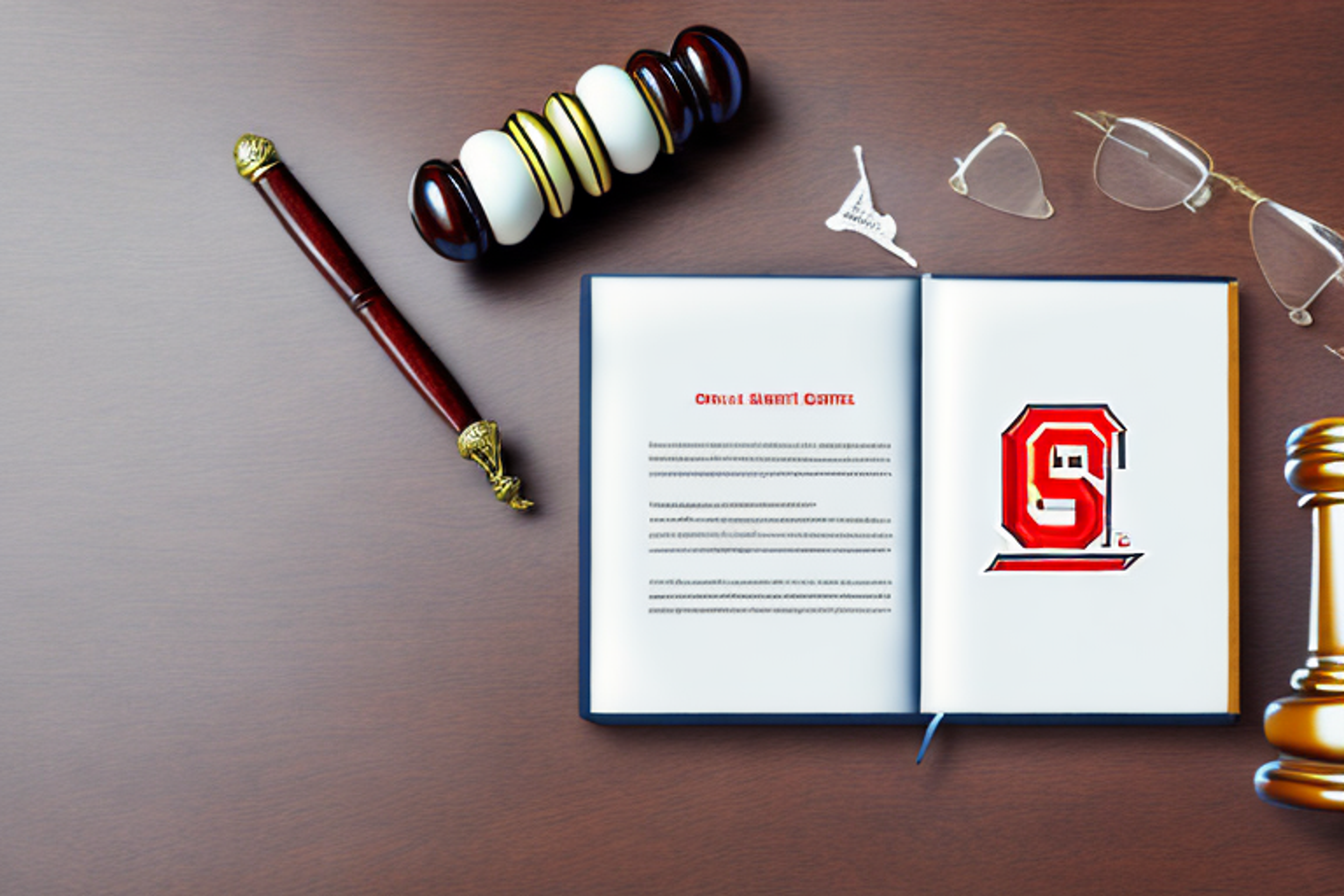How to Write a Compelling Personal Statement for Temple University Beasley School of Law
Learn how to craft a winning personal statement for Temple University Beasley School of Law.
Posted March 6, 2025

Table of Contents
If you're applying to law school, particularly to Temple University Beasley School of Law, then you already know the importance of submitting a strong personal statement. This is your chance to showcase your unique traits, experiences, and goals to the admissions committee and persuade them that you are the right candidate for their program. In this article, we'll dive into the details of writing a compelling personal statement that resonates with the admissions committee.
Understanding the Importance of a Personal Statement for Law School Admissions
To understand the significance of a personal statement, you need to know that your GPA and LSAT score only provide a limited perspective on your potential as a law student. A personal statement is your opportunity to share the story of who you are and illustrate your unique qualities, skills, and experiences. Think of it as your chance to provide a more in-depth look at your motivations, character, and perspectives beyond what they can see in your application documents.
Furthermore, a personal statement can also demonstrate your writing skills and ability to communicate effectively, which are essential qualities for success in law school and the legal profession. Admissions committees are looking for candidates who can articulate their thoughts clearly and persuasively, and a well-crafted personal statement can showcase these abilities. Additionally, a personal statement can help you stand out from other applicants who may have similar academic credentials, by highlighting your unique background and experiences that have shaped your interest in pursuing a legal career.
What Admissions Committees Look for in a Personal Statement
The admissions committee will look at your personal statement to learn more about your qualifications, your reasons for pursuing law, and how their program aligns with your goals. In a personal statement, admissions committees are looking for insight into who you are, what you have done, and where you are going. They seek unique perspectives, experiences, and qualities that set you apart from other applicants.
One important aspect that admissions committees look for in a personal statement is your ability to communicate effectively. Your personal statement should be well-written, organized, and free of errors. It should also demonstrate your ability to articulate your thoughts and ideas clearly and concisely.
Another factor that admissions committees consider is your level of commitment to the field of law. They want to see that you have a genuine interest in pursuing a career in law and that you have taken steps to prepare yourself for this path. This could include relevant coursework, internships, or volunteer work in the legal field.
Reflecting on Your Experiences and Goals to Create a Strong Personal Statement
Creating an outstanding personal statement requires you to reflect on your experiences, achievements, and goals. It is essential to showcase your accomplishments and demonstrate how they have prepared you for law school. Sharing your unique perspective and insights can set you apart from other applicants.
When writing your personal statement, think about why you want to attend law school and how that aligns with your ultimate goals. Consider your leadership, teamwork, problem-solving, communication, and analytical skills, and how they made you who you are and how you're suited to law school. Connect your experiences to your goals to demonstrate your commitment to the law profession and how this aligns with the school's mission and values.
It is also important to be authentic and genuine in your personal statement. Admissions committees can easily spot insincerity, so it's crucial to write from the heart. Share your personal story and how it has shaped your desire to pursue a legal career. Be honest about your strengths and weaknesses, and how you plan to overcome any challenges you may face in law school.
Tips for Crafting an Attention-Grabbing Opening Paragraph
The opening paragraph is where you need to grab the admission team's attention. Start by introducing yourself and what led you to pursue a career in law. You could tell a story, set up a scenario, or use a quote. Use a hook that is related to your experiences, and don't be afraid to be unique and creative.
One effective way to make your opening paragraph stand out is to use a personal anecdote. Share a specific experience that sparked your interest in law and how it has influenced your decision to pursue this career path. This will not only make your essay more engaging but also give the admission team a glimpse into your personality and values.
Another tip is to research the law school you are applying to and mention why you are specifically interested in attending that institution. This shows that you have done your homework and are genuinely interested in their program. It also demonstrates that you have a clear understanding of what you want to achieve and how that school can help you reach your goals.
Structuring Your Personal Statement: Dos and Don'ts
When it comes to structuring your personal statement, make sure you follow the guidelines provided by Temple University. You cannot express yourself freely. Be sure to stick to the prompt and word/character limits. Make your statement concise and specific but ensure that you answer the questions they have asked. Do not ramble nor use academic jargon. Use simple, easy-to-understand language.
Another important aspect to consider when structuring your personal statement is to have a clear introduction, body, and conclusion. Your introduction should grab the reader's attention and provide a brief overview of what you will be discussing. The body should provide specific examples and experiences that support your claims and answer the prompt. Finally, your conclusion should summarize your main points and leave a lasting impression on the reader.
It is also important to tailor your personal statement to the specific program or school you are applying to. Research the program and highlight how your experiences and goals align with their mission and values. This will show the admissions committee that you have done your research and are genuinely interested in their program.
Showcasing Your Unique Qualifications and Skills in Your Personal Statement
Your personal statement provides an opportunity to showcase your unique qualifications and skills. Starting off with broad claims, such as being detail-oriented, won't cut it. Instead, provide specific examples or experiences that demonstrate your qualities. Be sure to identify individual skills such as speaking, writing, critical thinking, and problem-solving skills. Talk about your involvements, jobs, community service or other experiences, and focus on their impacts on you and how they have prepared you for law school.
Additionally, it's important to highlight any relevant academic achievements or awards you have received. This could include high grades in challenging courses, research projects, or publications. These accomplishments demonstrate your dedication and ability to excel in a rigorous academic environment, which is highly valued in law school. Remember to tie these achievements back to your personal qualities and how they have contributed to your overall readiness for law school.
Highlighting Your Passion and Commitment to Law in Your Writing
Passion and commitment are essential traits for a successful applicant in law school. Within your personal statement, use your language to illustrate why you are passionate about the study of law and highlight your commitment to becoming a successful lawyer. Remember to be honest and provide evidence to support your claims. You must show them that you are mature and that you have the seriousness of purpose to pursue law studies.
One way to demonstrate your passion for law is to discuss any relevant experiences you have had in the field. This could include internships, volunteer work, or even personal experiences that have inspired you to pursue a career in law. By sharing these experiences, you can show the admissions committee that you have a genuine interest in the subject matter and are committed to making a difference in the legal field.
Another important aspect of highlighting your passion and commitment to law is to showcase your writing skills. Your personal statement is an opportunity to demonstrate your ability to communicate effectively and persuasively, which are essential skills for a successful lawyer. Make sure to proofread your statement carefully and consider having someone else review it as well to ensure that your writing is clear, concise, and free of errors.
Common Mistakes to Avoid When Writing a Personal Statement for Law School
While writing your personal statement for law school, it is vital that you avoid some pitfalls that may impact your application negatively. For instance, do not use your personal statement to discuss bad grades or bad decisions in a non-constructive way. Furthermore, avoid having a negative tone or sounding too noncommittal in your statement of purpose. You don't want to sound like you are unsure, not confident, or not cohesive.
Another common mistake to avoid when writing a personal statement for law school is being too generic or cliché. Admissions officers read hundreds of personal statements, so it is important to make yours stand out. Avoid using overused phrases or generic statements that do not provide any unique insight into who you are as a person or why you want to pursue a career in law. Instead, focus on specific experiences or examples that demonstrate your passion for the field and your unique perspective.
How to Edit and Revise Your Personal Statement for Maximum Impact
After writing your personal statement, take some time to edit it. Ask friends, mentors, or professionals in the field to read through it and offer their advice. Get constructive feedback that will help summarise your skills and experiences in an impactful manner that answers the prompt. Ask for any possible detachment or bias that makes you lean toward grandiose or excessive language. Be sure to catch any errors such as typos, grammatical errors, or misspellings.
Seeking Feedback and Guidance from Professionals Ments on Your Personal Statement
Seeking feedback and guidance from professionals can offer valuable insights and perspectives for creating a compelling personal statement. Utilize resources such as the school's law program staff, Career Services, or writing centres to get constructive feedback about drafting the best possible personal statement possible.
Examples of Successful Personal Statements for Temple University Beasley School of Law
Don't forget to take inspiration from previous successful personal statements written by past applicants to Temple University Beasley School of Law. Analyze their writing style and storytelling techniques to discover what elements made their statements effective. Utilize the similarities without plagiarizing any content and showcase your own unique perspective and experiences.
Final Tips and Strategies for Writing an Outstanding Personal Statement
In conclusion, the most important advice to give to potential law students is to follow instructions, answer the prompt, and provide evidence of skills and experience that are relevant to the school. Don't forget to bring in individuality and heart as they add to your unique perspective. Others may get these aspects right, but it is the language and story mechanics that will add more weight to your personal statement, thus making it stand out from the other applications.











